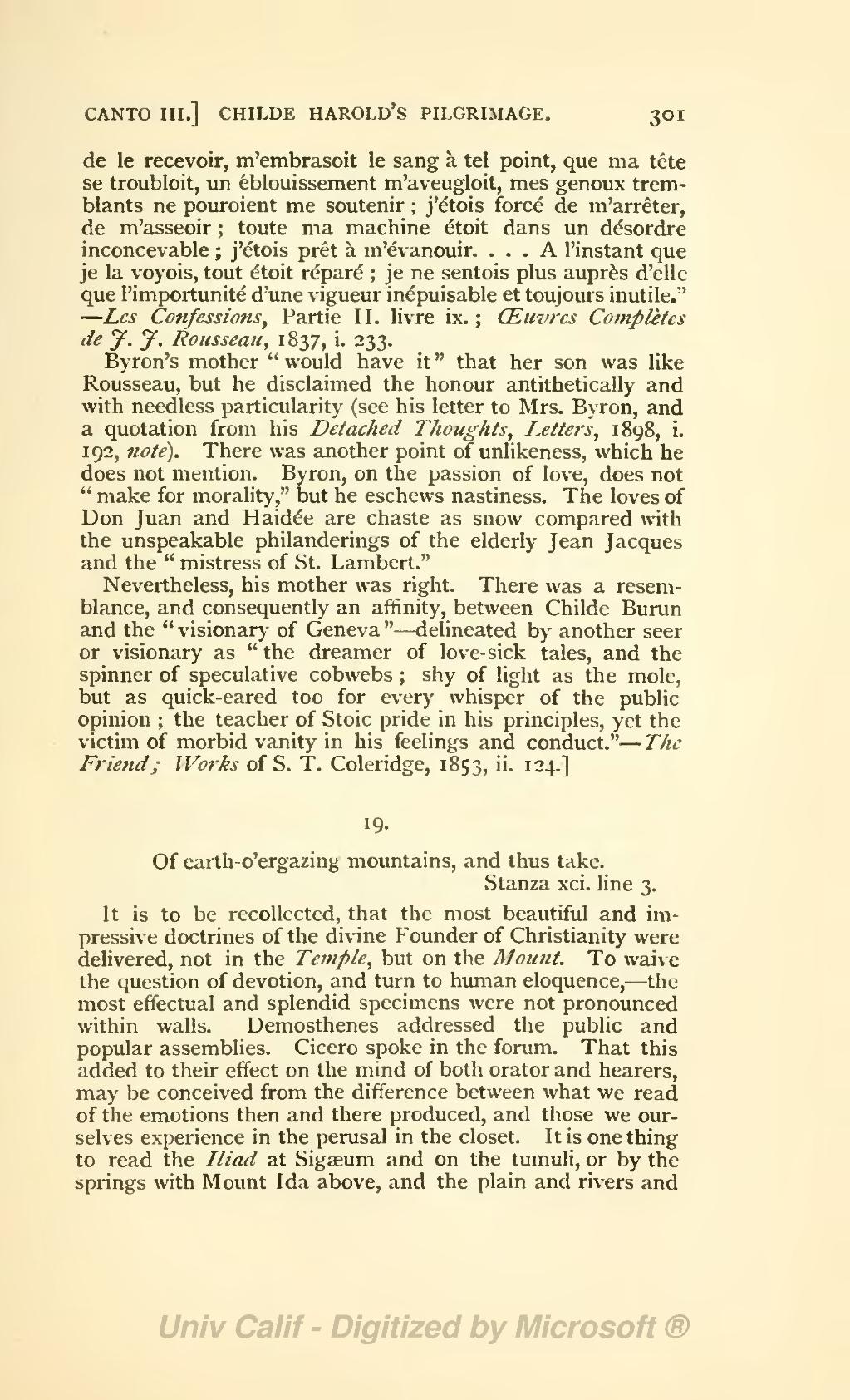de le recevoir, m'embrasoit le sang à tel point, que ma téte se troubloit, un éblouissement m'aveugloit, mes genoux tremblants ne pouroient me soutenir; j'étois forcé de m'arrêter, de m'asseoir; toute ma machine étoit dans un désordre inconcevable; j'étois prêt à m'evanouir.... A l'instant que je la voyois, tout étoit réparé; je ne sentois plus auprès d'elle que l'importunité d'une vigueur inépuisable et toujours inutile."—Les Confessions, Partie II. livre ix.; Œuvres Complètes de J. J. Rousseau, 1837, i. 233.
Byron's mother "would have it" that her son was like Rousseau, but he disclaimed the honour antithetically and with needless particularity (see his letter to Mrs. Byron, and a quotation from his Detached Thoughts, Letters, 1898, i. 192, note). There was another point of unlikeness, which he does not mention. Byron, on the passion of love, does not "make for morality," but he eschews nastiness. The loves of Don Juan and Haidée are chaste as snow compared with the unspeakable philanderings of the elderly Jean Jacques and the "mistress of St. Lambert."
Nevertheless, his mother was right. There was a resemblance, and consequently an affinity, between Childe Burun and the "visionary of Geneva"—delineated by another seer or visionary as "the dreamer of love-sick tales, and the spinner of speculative cobwebs; shy of light as the mole, but as quick-eared too for every whisper of the public opinion; the teacher of Stoic pride in his principles, yet the victim of morbid vanity in his feelings and conduct."—The Friend; Works of S. T. Coleridge, 1853, ii. 124.]
19.
Of earth-o'ergazing mountains, and thus take.
Stanza xci. line 3.
It is to be recollected, that the most beautiful and impressive doctrines of the divine Founder of Christianity were delivered, not in the Temple, but on the Mount. To waive the question of devotion, and turn to human eloquence,—the most effectual and splendid specimens were not pronounced within walls. Demosthenes addressed the public and popular assemblies. Cicero spoke in the forum. That this added to their effect on the mind of both orator and hearers, may be conceived from the difference between what we read of the emotions then and there produced, and those we ourselves experience in the perusal in the closet. It is one thing to read the Iliad at Sigæum and on the tumuli, or by the springs with Mount Ida above, and the plain and rivers and
